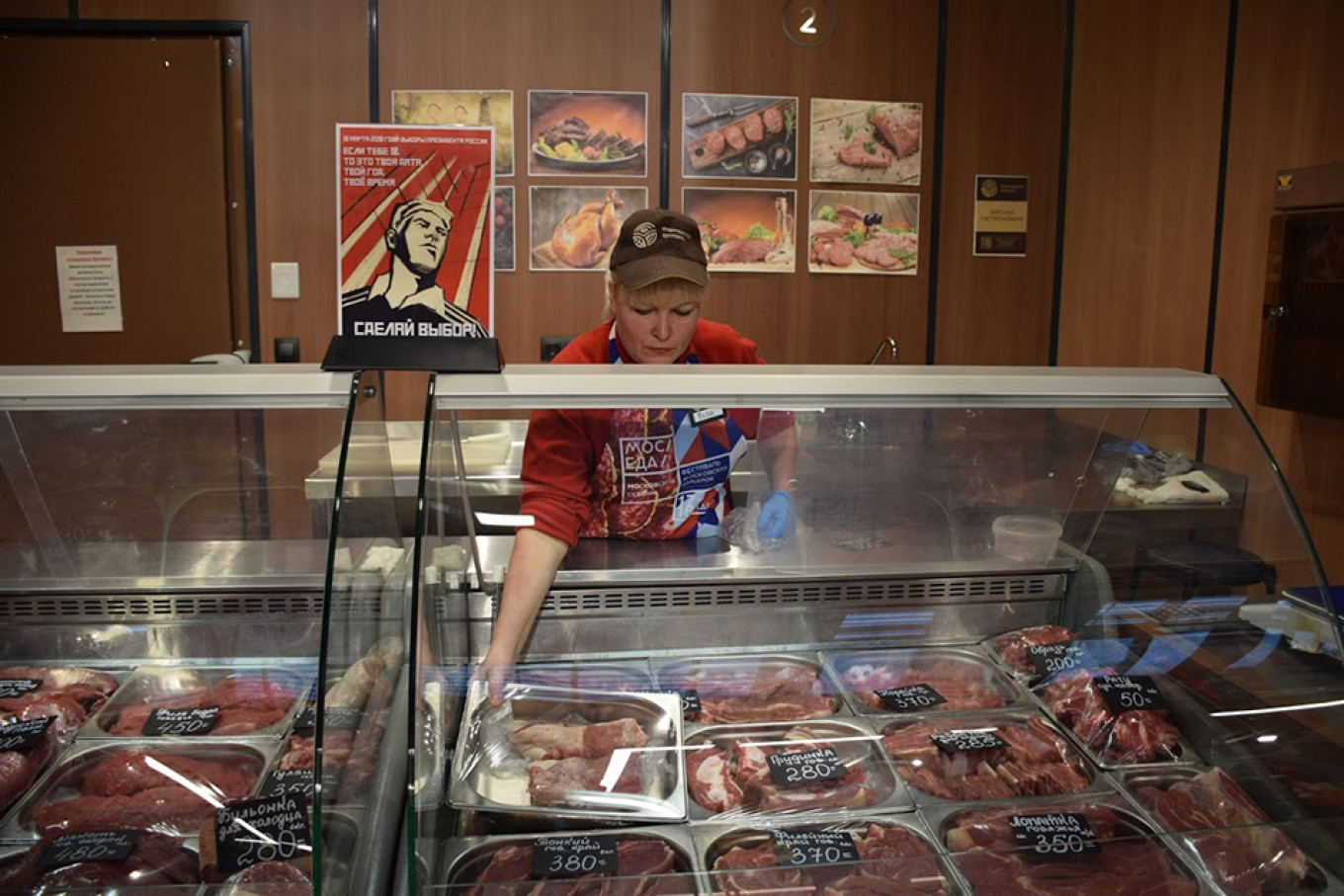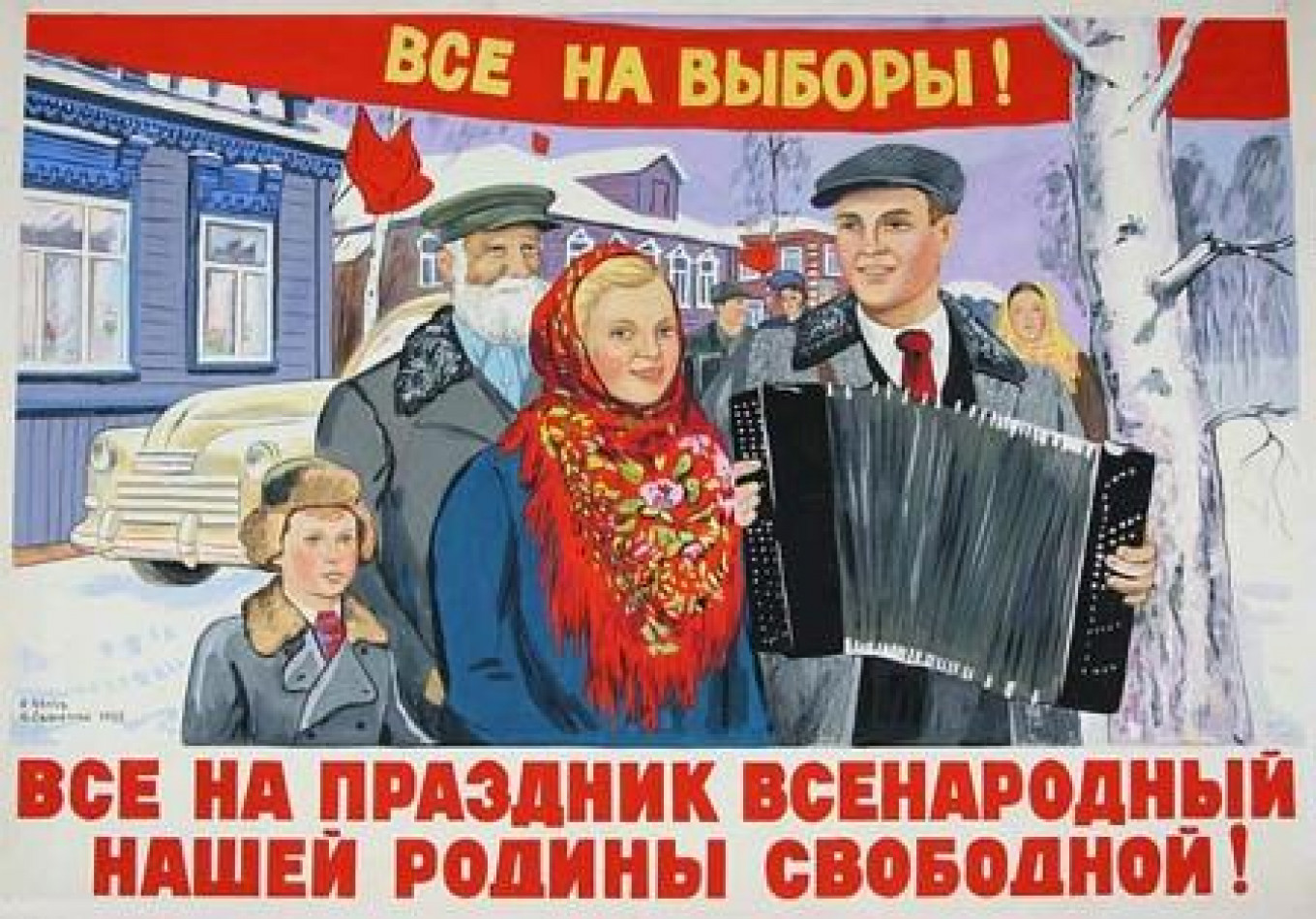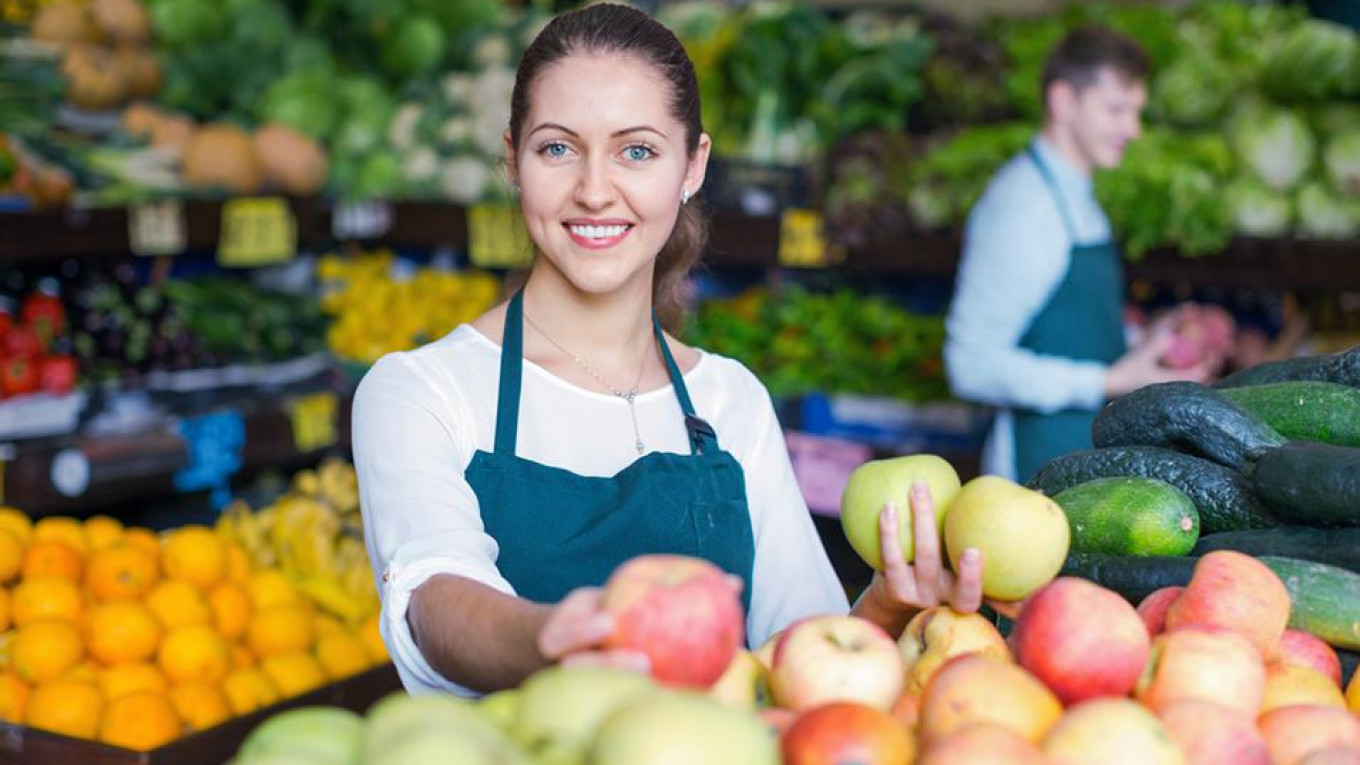Go to the polls on March 18 and you could be in for a pleasant surprise. No, your vote for Pavel Grudinin isn’t likely to tip the scales and put the Communists back in power, but Moscow is offering an additional incentive for food lovers.
Outside 1,500 of the city’s polling stations, voters will be able to buy delicacies at the "Mos/Eda!" festival. Scallops from Murmansk, 110 types of cheese from all over Russia, and apples from Moldova will be on sale to attract shoppers — and voters.
The organizers of the “Mos/Eda!” festival say that the main point of the event is to give Muscovites a chance to vote on what they’d like to see at the traditional weekend markets held in Moscow from April through November.
The marketing materials are reminiscent of those for Moscow’s 870th anniversary last year. But in keeping with the theme of election day, you can “vote” for fish from Kamchatka, cheese from Belarus, and confections from Crimea.

Back to the Future
It's no secret that the Kremlin is facing a turnout problem in the upcoming elections.Voter participation has dropped in every presidential election since 1991, from 76.66 percent to 65.3 percent in 2012. In 2018, the Kremlin has said it hopes to get 70 percent of Russians to the polls.
Meanwhile Alexei Navalny, who is blocked from registering as a candidate, has called for a voter boycott, which could threaten to drive even more potential voters away. It’s enough for one to wish for the good old days of the USSR, when turnout hovered at around 100 percent.
The “Mos/Eda!” festival is not so far out of the Soviet playbook for elections. Maya Akhrarova, 49, told The Moscow Times how she went with her mother to the polls in Tashkent, now the capital of Uzbekistan. There was an entrance where you came in, gave your passport, filled out the ballot, and then you left through a different exit in back, she explained, where there was a cafeteria. “They were frying and steaming pirozhki and all sorts of other things. It all smelled delicious,” she recalled with nostalgia.
Zinaida Sukhova, 82, a former English teacher from Rostov-on-Don, had similar memories to share. “Back then,” she said, “there were fewer groceries you could buy, but here...”
Voting itself was symbolic. The Communist Party had already picked out the candidates that would win, and if you didn’t agree, your only option was to leave your ballot blank, which, in 1966, 0.2% of the electorate chose to take advantage of. Sukhova described voting not as a political action, so much as something that was expected of you. “Some of the names I knew, some of them I didn’t. It didn’t really matter,” she said, adding “I wasn’t interested in politics.” Despite her political apathy, she was a member of the Communist Party and “couldn’t imagine not going to vote. I knew it was my duty.”

At 6 a.m. on election day, she was “woken up with music. It was joyful, people got up, went to vote, and then went about their business.” The elections happened on a Sunday, but people were not upset about being roused at such an early hour. It was, in some sense, a holiday, and getting up early was like waking up on Christmas morning to check under the tree for presents.
In Uzbekistan, karnay and zurna are instruments usually reserved for very special occasions, but Akhrarova woke up to hear them blaring from the radio on election morning in Tashkent. “It was just like a wedding – everyone went,” she said.
Sukhova lamented that now elections are “not a holiday anymore.”
Sukhova was intrigued when told about “Mos/Eda!” Would the festival be similar to the markets in the Soviet Union? She looked at the surveys and said, “Well, we didn’t have brochures back then, but I think it’s great when people write their wishes. It’s even better than the elections.”
For more information about the markets, which will be held on March 17 and 18 throughout the city, see the municipal site.
A Message from The Moscow Times:
Dear readers,
We are facing unprecedented challenges. Russia's Prosecutor General's Office has designated The Moscow Times as an "undesirable" organization, criminalizing our work and putting our staff at risk of prosecution. This follows our earlier unjust labeling as a "foreign agent."
These actions are direct attempts to silence independent journalism in Russia. The authorities claim our work "discredits the decisions of the Russian leadership." We see things differently: we strive to provide accurate, unbiased reporting on Russia.
We, the journalists of The Moscow Times, refuse to be silenced. But to continue our work, we need your help.
Your support, no matter how small, makes a world of difference. If you can, please support us monthly starting from just $2. It's quick to set up, and every contribution makes a significant impact.
By supporting The Moscow Times, you're defending open, independent journalism in the face of repression. Thank you for standing with us.
Remind me later.






